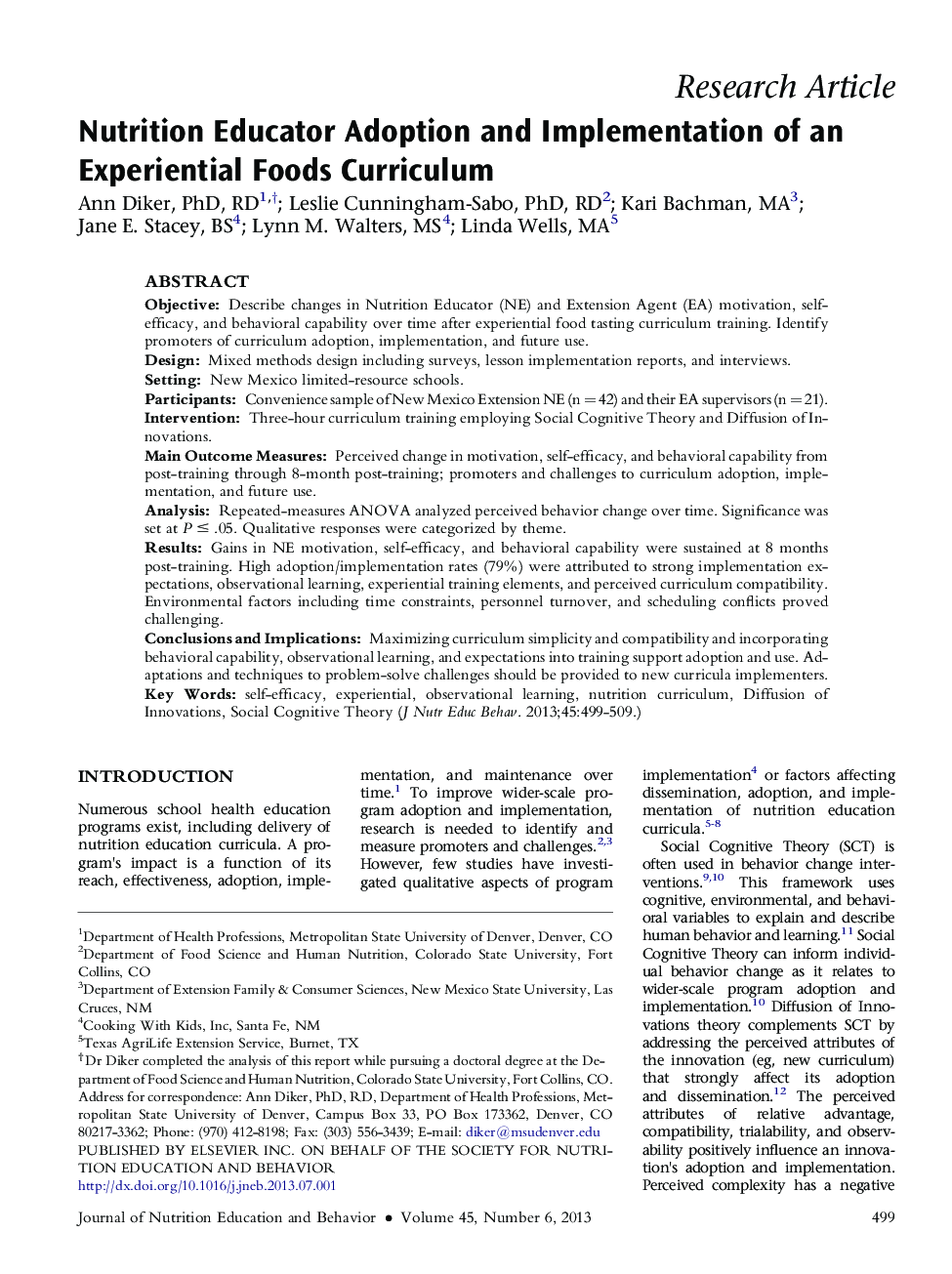| Article ID | Journal | Published Year | Pages | File Type |
|---|---|---|---|---|
| 361993 | Journal of Nutrition Education and Behavior | 2013 | 11 Pages |
ObjectiveDescribe changes in Nutrition Educator (NE) and Extension Agent (EA) motivation, self-efficacy, and behavioral capability over time after experiential food tasting curriculum training. Identify promoters of curriculum adoption, implementation, and future use.DesignMixed methods design including surveys, lesson implementation reports, and interviews.SettingNew Mexico limited-resource schools.ParticipantsConvenience sample of New Mexico Extension NE (n = 42) and their EA supervisors (n = 21).InterventionThree-hour curriculum training employing Social Cognitive Theory and Diffusion of Innovations.Main Outcome MeasuresPerceived change in motivation, self-efficacy, and behavioral capability from post-training through 8-month post-training; promoters and challenges to curriculum adoption, implementation, and future use.AnalysisRepeated-measures ANOVA analyzed perceived behavior change over time. Significance was set at P ≤ .05. Qualitative responses were categorized by theme.ResultsGains in NE motivation, self-efficacy, and behavioral capability were sustained at 8 months post-training. High adoption/implementation rates (79%) were attributed to strong implementation expectations, observational learning, experiential training elements, and perceived curriculum compatibility. Environmental factors including time constraints, personnel turnover, and scheduling conflicts proved challenging.Conclusions and ImplicationsMaximizing curriculum simplicity and compatibility and incorporating behavioral capability, observational learning, and expectations into training support adoption and use. Adaptations and techniques to problem-solve challenges should be provided to new curricula implementers.
